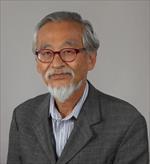Kwang-Jin Kim, Ph.D. is Professor of Medicine at the University of Southern California – Keck School of Medicine. He also has secondary appointments in the Departments of Physiology and Biophysics, Pharmacology and Pharmaceutical Sciences, and Biomedical Engineering at USC.
He received B.S. and M.S. degrees in Electronics Engineering from the Seoul National University, Seoul, Korea, in 1971 and 1973, respectively.
He served in the Republic of Korea Army from March 1973 through June 1976.
He was admitted to the Department of Bioengineering, Graduate School, University of Pennsylvania (Philadelphia, PA) in September 1976. After getting his Ph.D. in Bioengineering in May 1980, he moved to the University of California (Los Angeles, CA) as a postdoctoral fellow. He was a recipient of the postdoctoral fellowship from the American Heart Association – Greater Los Angeles Area from July 1980 to June 1982. From July 1982 through August 1986, he did research and teaching at UCLA as Assistant Research Physiologist.
From September 1986 through December 1990, he was at the Cornell University Medical College, New York, NY, as Assistant Professor of Medicine and Physiology.
In January 1991, he moved to USC as Associate Professor of Medicine (and Physiology and Biophysics) and got his tenure in 1994.
He has been a member of New York Academy of Sciences, Association for Research in Vision and Ophthalmology, American Society of Cell Biology, Controlled Release Society, and Biomedical Engineering Society. He is a current member of American Association for the Advancement of Sciences and American Physiological Society (APS). [He serves as a councillor of the APS Epithelial Transport Group Steering Committee, starting in April 2010 for three years.] He has served as an Editorial Advisory Board member of the Pharmaceutical Research from 1998 to 2005. He has been actively participating in various national and international meetings/workshops as a presenter/teacher.
His research interests encompass electrophysiology and cell pathophysiology of pulmonary (airways and alveoli) and ocular (conjunctiva) epithelial barriers. He has been studying the active/passive barrier properties of respiratory epithelia utilizing amphibian lungs, isolated perfused rat lungs, and alveolar /airway epithelial cells in primary culture. Transport cell physiology of various epithelial barriers has been studied in his laboratories utilizing Ussing chamber techniques and other approaches (e.g., confocal laser scanning microscopy and electron microscopy, short-circuiting techniques, patch clamping techniques, impedance analysis, permselectivity assessment of paracellular pathways using dilution and bi-ionic potential measurements, equivalent pore/slit analysis, water transport estimations using capacitance probes, and western/northern analyses).


